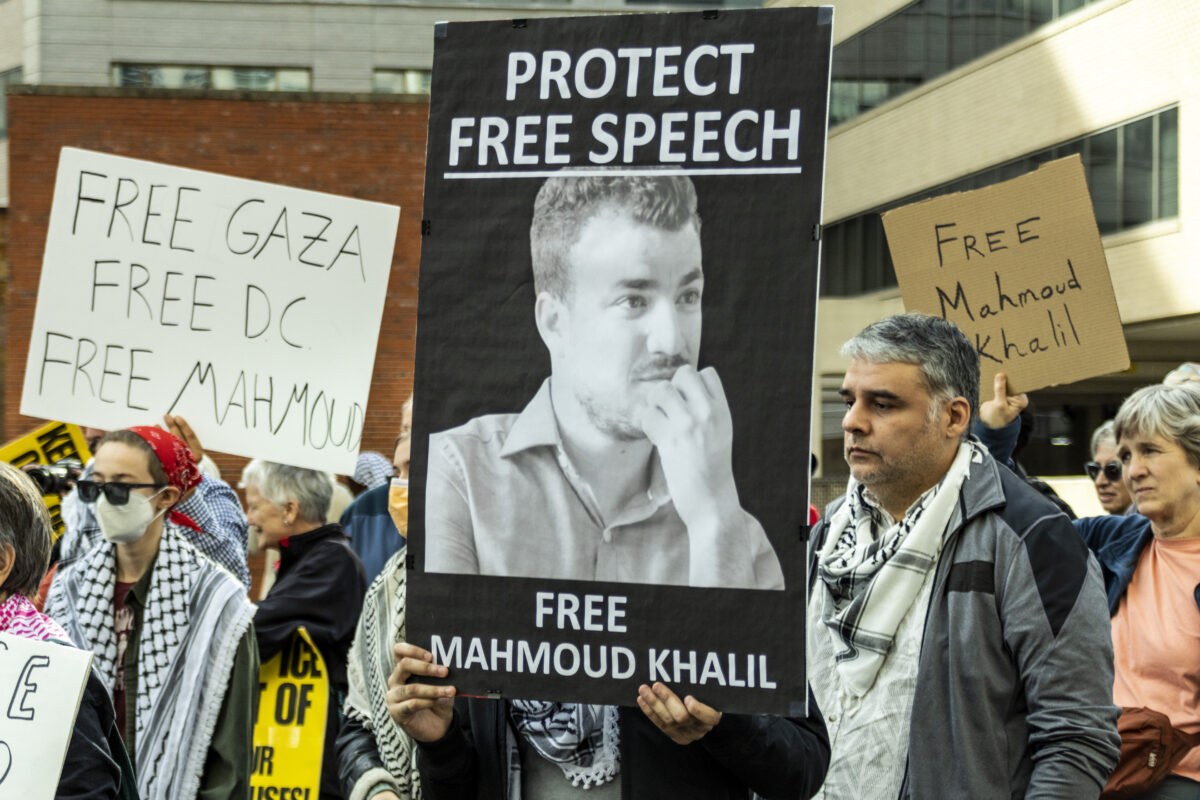CSUDH must issue statement condemning counterparts and ensure students’ safety.
By Edmund A. Keenan, Guest Contributor
An immigration judge sided with the Trump administration on Apr. 11, ruling that Columbia University Ph.D. student Mahmoud Khalil—a legal resident and husband to a U.S. citizen—can be deported without trial.
On Mar. 8, Immigration and Customs Enforcement (ICE) snatched Khalil from the arms of his sobbing, pregnant wife. The official reason for his arrest doesn’t make sense. His so-called crime was criticizing a foreign government the International Court of Justice says may have violated the Genocide Convention.
Political speech unfavorable to U.S. government interests is now subject to penalty, apparently. What’s more, pro-Israel advocacy groups have reportedly targeted Palestinian rights activists on college campuses and pressured university administrators, like those at Columbia, into taking punitive action against them. In Khalil’s case, this meant detention and now, possible deportation.
I urge you to pause a moment and consider just what this means.
Antisemitism is a real threat and should be taken seriously. Accusations of antisemitism cannot be taken seriously when they’re based on nothing more than opposition to a foreign government—and especially when they’re weaponized to deport a political opponent. This was never about student safety.
This is a coordinated effort between pro-Israel activists, Columbia administrators and ICE to silence student voices. Khalil’s green card affords him the same free speech rights as citizens—rights that protect even white supremacists. So why is he in a Louisiana ICE facility awaiting deportation? Why is Columbia enforcing what amounts to a secret speech code?
This is something that should concern every CSUDH student. Khalil is set to be deported to the other side of the world with no due process, no Miranda rights and no trial. Khalil is not the only one who has been disappeared; other students across the country have met similar fates, with some even escaping to Canada or other countries.
What does student privacy look like in a world where Columbia is handing over student addresses to ICE? What stops CSUDH from doing the same thing? Don’t think for a minute that what’s done to legal permanent residents today couldn’t be extended to other citizens tomorrow. If Khalil can be rendered into an unmarked van by masked men for his words, any of us could get the same punishment for a protest sign, class paper or writing an op-ed piece like this.
When 100 CSUDH students rallied on campus on Mar. 13, we proved that we won’t be intimidated. Now let’s turn that protest into some policy. CSUDH must replace its vague Time, Place, and Manner policies with a binding pledge: No student data will be turned over to ICE. Ever. Additionally, Associated Students, Inc. must adopt a resolution condemning the Columbia administration’s actions and demanding the release of Khalil (and the others). Lastly, rank-and-file students must continue the public display of solidarity we saw at last month’s rally. If Columbia won’t protect its own students, we will.
From the Muslim ban that began during President Trump’s first term, to state laws criminalizing pro-Palestinian speech, Khalil’s case is not isolated. It’s part of a broader pattern, and this looks like the blueprint for what could come next. Are we going to allow residency and education to become privileges reserved for the politically obedient?
If the CSUDH administrators won’t condemn their counterparts at Columbia for handing over Khalil’s private address to ICE, how can we be sure CSUDH wouldn’t do the same to one of us? Will we be a campus that waits until it’s our turn—or the one that draws the line here?
History won’t ask if we agreed with Khalil’s views—only whether we had the courage to fight when his rights were stripped. At CSUDH, let’s answer that question now.
Edmund A. Keenan is a senior psychology student at Cal State Dominguez Hills and a local organizer for the Democratic Socialists of America.

